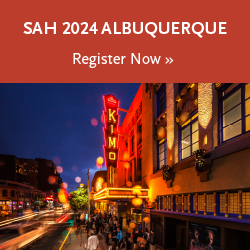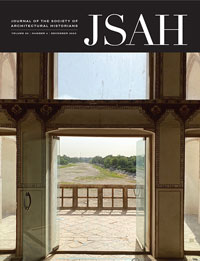This conference aims to explore the exchanges, tangencies, overlaps and frictions between designers – of the architectural object as much as of the city and the territory – and architectural historians in the cultural, political, economic, and social context of Italy in the second half of the 20th century.
The Project of History – Histories of Projects Architects/Historians in Post-war Italy
International Symposium, 16-17 November 2023, Florence
Scientific Supervisors
Lorenzo Ciccarelli, Università di Firenze
Benjamin Chavardès, École nationale supérieure d’architecture de Lyon
Scientific Advisory Board
Marco Biraghi, Politecnico di Milano
Denise Costanzo, Penn State University
Philippe Dufieux, École nationale supérieure d’architecture de Lyon Sabine Frommel, École Pratique des Hautes Études
Andrew Leach, University of Sydney
Paolo Portoghesi, Sapienza Università di Roma
Philippe Prost, École nationale supérieure d’architecture de Paris-Belleville Franco Purini, Sapienza Università di Roma
Daniel Sherer, Princeton University
Paolo Zermani, Università di Firenze
The multifaceted and nuanced relationship between history and design has marked late twentieth- century Italian architectural culture, and have been its most distinct characteristic on the international scene. This conference aims to explore the exchanges, tangencies, overlaps and frictions between designers – of the architectural object as much as of the city and the territory – and architectural historians in the cultural, political, economic, and social context of Italy in the second half of the 20th century. Intended to discuss the specific contributions of individual figures, moments, and sites of exchange, it invites studies based on archival research that are also open to questioning the broader historical, cultural, and disciplinary conditions that shaped dialogues between architects and historians in post-war Italy. The goal is to promote new and broader research directions through critical interrogation of well-identified case studies. This conference focused on the Italian scene will be the first of two, followed by a second conference, to be held in Lyon in the autumn of 2024, that will explore the echoes of Italian design/historical culture on the European and global scene.
Proposals may include, but are not limited to, the following research directions:
1) Architectural historians directly involved in architectural and urban projects: e.g. Manfredo Tafuri in the Società di Architettura e Urbanistica (1957-1963) or Bruno Zevi in the Studio ASSE (1967-1970).
What was the methodological terrain that prompted those architectural historians to engage in the profession and design activity? What were the prospects, ambitions, and outcomes of this engagement? And how did these design interludes influence contemporary architectural history research?
2) Architectural designers who engaged in historical research: for example, Carlo Aymonino and his collaborators’ work on the urban history of Padua (1970), Vittorio Gregotti’s history of industrial design in Italy (1986), or Vittorio De Feo’s studies of Andrea Pozzo (1988). Why did those architects feel the need to engage in extensive and thorough historical research? And how was this work reflected in their design practice?
3) Peculiar figures of architect-intellectuals who throughout their careers consistently intertwined historical research and design practice: Why and how did these disciplinary fields overlap? Where were intersections and influences located? What models did they follow?
4) Long-lasting friendships and cultural exchanges between architects and historians: for example, the fruitful relations between Vittorio Savi and Adolfo Natalini, or between Manfredo Tafuri and Vittorio Gregotti. How did these intellectual associations begin, and how did they evolve over time? What did historical research bring to design practice, and what did design bring to historical research?
5) Schools that developed around a fulcrum of exchanges and mutual influences between architects and architectural historians: for example, La Sapienza in Rome, or the Istituto Universitario di Architettura di Venezia. Which figures established this direction? What are the cultural assumptions, methodologies and outcomes of such an intellectual and didactic commitment?
6) Events, exhibitions, conferences and debates on Italian territory that represented fundamental moments of encounter, confrontation, and deepening of the links between design and the history of architecture.
Interested contributors should send an abstract (300 words) and a short biography with institutional affiliation (100 words) to lorenzo.ciccarelli@unifi.it and benjamin.chavardes@lyon.archi.fr by 30 January 2023. The proposals will be selected through a preliminary evaluation by the scientific committee and a double-blind peer-review process. Developed versions of selected contributions to both conferences are intended to be included in an international peer-reviewed publication.
Additional Information
Venue: University of Florence, Department of Architecture Dates: 16-17 November 2023
Accepted Languages: Italian and English
Organizers
Università degli Studi di Firenze, Dipartimento di Architettura École nationale supérieure d’architecture de Lyon
Contacts
lorenzo.ciccarelli@unifi.it
benjamin.chavardes@lyon.archi.fr


